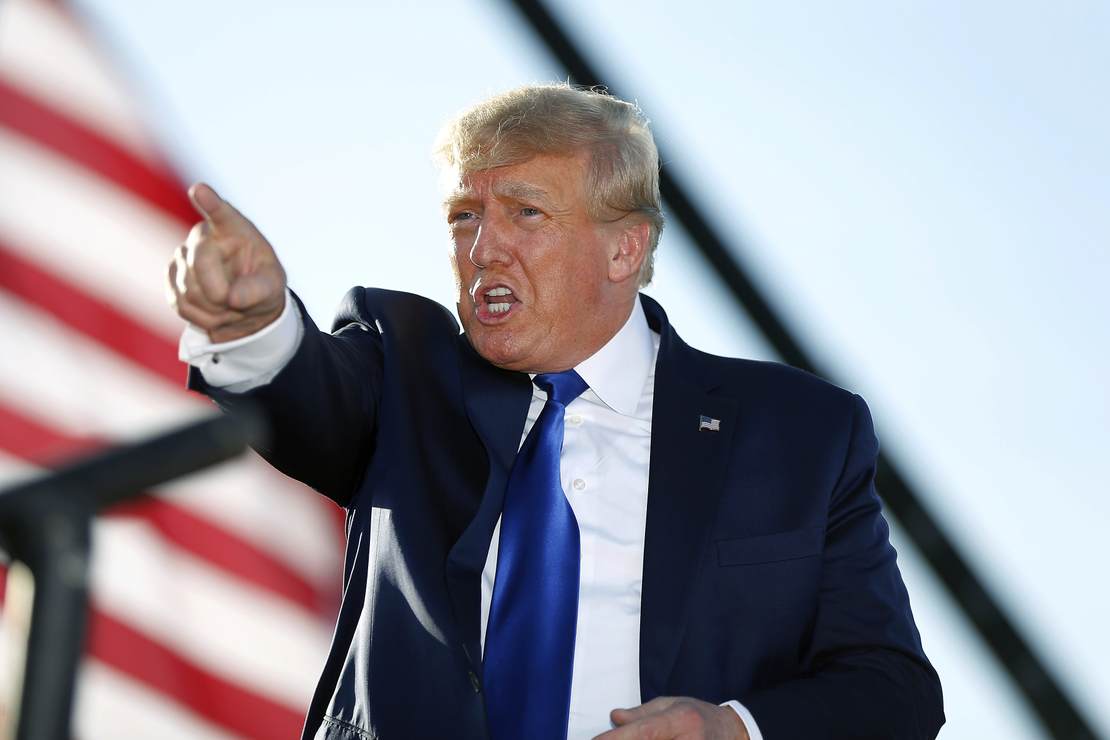
There’s been a lot of talk about classified documents regarding the FBI raid on President Donald Trump’s Mar-a-Lago home.
Trump himself talked about declassifying documents and there is a report about a “standing order” to declassify documents he had over documents that he was reviewing.
But there’s an important thing to note that the criminal statutes alleged in the warrant go right around that — that it isn’t about whether the documents are classified or not.
Because, you see, first you select the target, then you decide to search, then you pick the alleged crime. https://t.co/jH5Gce2o9a
— Brit Hume (@brithume) August 13, 2022
It’s a way of trying to get Trump on something while jacking up the left by screaming “classified” or “nuclear.” But those aren’t the critical questions in the underlying statutes. Indeed, there’s been no evidence so far that it has anything to do with nuclear stuff. As we reported, that isn’t anywhere in the warrant, at least what we has been revealed so far. It was just a “sources” report from the Washington Post which has all the validity of three-day-old cheese left out to rot. But all the left ran with it.
The Federalist’s senior legal correspondent Prof. Margot Cleveland explains in an interesting Twitter thread.
Search warrant & schedules has been bristling me & I finally figured out why–we are getting lost in what was taken & what was listed as susceptible to seizure & NOT the criminal provisions on which warrant was based. I’m still ruminating here, but what I see is NONE of the three criminal statutes used to justify the search require materials to be “classified”. Yet, both NY Times & Washington Post directed everyone to idea of Trump keeping classified info & list of what was taken highlighted that too.
The three statutes in question are 18 U.S.C. §§ 793, 2071, and 1519.
But as Cleveland continues:
Espionage Act’s plain language does not require material related to “national defense” to be classified. (Preliminary research confirms my reading but want to dig deeper).
Second criminal provision, also doesn’t distinguish between classified and unclassified.
Nor does the third. And IN FACT the third isn’t concerned about Trump’s possession of it, but his “destruction” of it.
READ RELATED: New York county mandates new warnings in gun shops for some reason
So the “classified” “top secret” is an emotive red herring. The search was authorized NOT because Trump allegedly had top secret information (which he says he didn’t b/c he declassified). But under the statutes, it doesn’t matter.
The problem is also that the statutes cited could have wide latitude.
And whether classified or not, the second statute cited, seems to make Trump taking anything that is considered “Presidential Papers” from White House, whether classified or not; whether the archivest (sp?) has a copy or not.
And the first statute makes “national defense” the issue, again whether declassified or not, and could include things such as pictures of Trump by military equipment etc., and that would seem to reach “personal” as opposed to non-presidential papers.
So, if I’m reading the statutes correctly, all DOJ has to do is show judge that Trump had kept Presidential Papers, which would clearly cover anything that was ever classified (unless copies are exempt???), b/c those are gov’t property & go to archivist.
She also noted that there is a separate statute about classified material but that wasn’t cited in the warrant.
Why was the “espionage act” used instead/in addition? It doesn’t need to be classified under espionage act and it doesn’t need to be Presidential Papers.
And why is “Obstruction of Justice” part of this which deals with destruction NOT the keeping? My gut is that DOJ wants a crime to prosecute Trump with and it appears keeping Presidential Papers qualifies, but they also want to get him for “destroying” evidence but for what?
What was the underlying “investigation or proper administration of justice” that DOJ is claiming he is seeking to obstruct? Here I think they are digging for Trump’s post-election & January 6 communications and if missing “ah ha,” he obstructed justice.
I’m still noddling this but my big take-away is the entire “classified” focus is misplaced. Trump is the man & they found the “crimes”. But “classified/top secret play to the public & distract from the entire goal. And the obstruction tells you the breadth of investigation is much beyond Trump keeping Presidential Records. And on that point, it would seem that any document that WAS classified at some point between 2017-2021 would be definition be a Presidential Record, and viola a crime to keep. This still stinks but odor skunk & not cat pee.
So to boil it all down, someone tried to figure out how to get him, casting the widest net on things he might have that they could call “national defense.” As Hume and Cleveland accurately noted, it’s going after the man and then trying to find a “crime” to fit. But it means “classified/not classified” is irrelevant to the underlying statutes.
But the other backside to this is that if they are then going to try to hook Trump up for letters from Kim Jong Un or some such ridiculousness, that will just confirm to everyone what a political hatchet job this is, particularly in light of how Hillary Clinton was treated with her private server. Then, too, he didn’t even remove the items — they were sent to him by the GSA. He likely didn’t even know what was there and was cooperating to give them anything they wanted. So it’s going to be hard to impute any kind of actions to him regarding removal. But the aim ultimately here might be to get an indictment and hang him up, even knowing they would likely lose.
Source:





